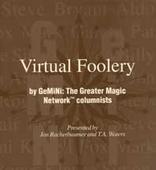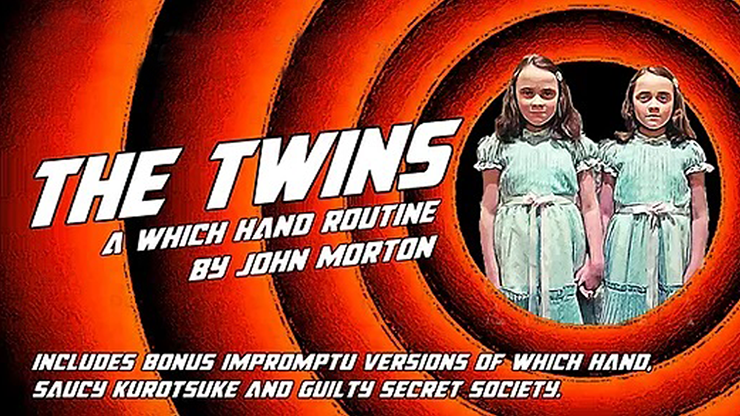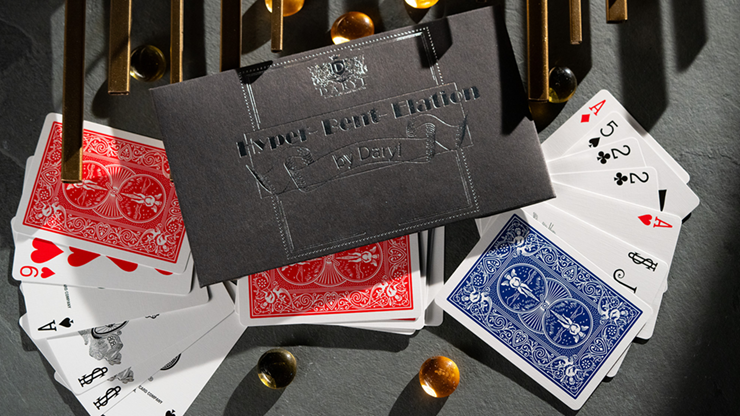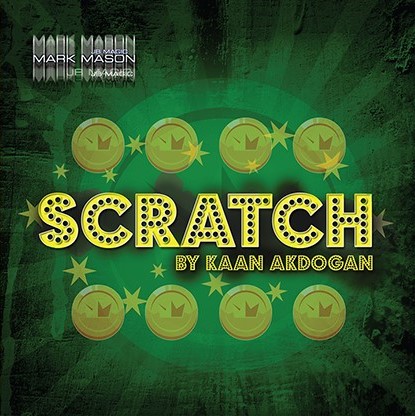Virtual Foolery
Racherbaumer, Jon & T.A. Waters
Stevens Magic Emporium
(Based on 1 review)

Format: Paperback
Publication Summary: 1997, 31 pp
Reviews
(Top ▲)
“There has been much hype, overkill, buzz, spin, and media-blitzing about the Net – a net that has caught, snagged, and trapped millions of users. Its allure is undeniable. There are incredible, intrinsic possibilities to being ‘wired.’ This is why true believers rave and rhapsodize. This is why writers and communicators cannot afford to remain aloof. This is why many are leading the pack.”
Jon Racherbaumer, from the Introduction to Virtual Foolery
Published by Stevens Magic Emporium in 1997, Virtual Foolery is a 32-page booklet comprised of material by selected writers from the now defunct Greater Magic Network, an on-line forum that was only available to subscribers.
Interestingly, the material is exactly what you’d expect to get on-line – a grab bag of effects and ideas that constitute as much a kind of “brainstorming session” as anything else. For example, Ian Adair contributes an effect he devised using a video tape (“The Sound of Music”) not because he envisioned using it in his show, but rather because, as he states, “Joe Stevens is the king of magical videos,” so he thought he would “concoct something really good using a video.”
However, lest you interpret my remarks as wholly disparaging, I should tell you that I enjoyed reading this book. The material is easy to digest and there is some solid (if not earth-shattering) magic.
Jon Racherbaumer, from the Introduction to Virtual Foolery
Published by Stevens Magic Emporium in 1997, Virtual Foolery is a 32-page booklet comprised of material by selected writers from the now defunct Greater Magic Network, an on-line forum that was only available to subscribers.
Interestingly, the material is exactly what you’d expect to get on-line – a grab bag of effects and ideas that constitute as much a kind of “brainstorming session” as anything else. For example, Ian Adair contributes an effect he devised using a video tape (“The Sound of Music”) not because he envisioned using it in his show, but rather because, as he states, “Joe Stevens is the king of magical videos,” so he thought he would “concoct something really good using a video.”
However, lest you interpret my remarks as wholly disparaging, I should tell you that I enjoyed reading this book. The material is easy to digest and there is some solid (if not earth-shattering) magic.
- Steve Bryant’s “Everywhere and Nowhere Goes Hollywood” is a clean, quick and commercial handling for Hofzinser’s now-classic plot.
- Aldo Colombini’s “Sand-Which” is a Twisting-The-Aces routine with the novel climax of having two chosen cards suddenly appear face down between the two pairs of face-up Aces.
- Mark Garetz’s “Persistence of Thought” is an engaging presentation for the divination of a chosen card. Mark’s handling uses a Ted Lesley deck, but one could easily apply his presentation to similar effects using a regular pack.
- Simon Lovell’s “Selling The Six-Dice Stack” and its follow-up, “Grandfather’s Beer,” are a combined lesson in endowing something as simple (and potentially lifeless) as a dice-stacking move with emotional hook.
- Ron Wilson’s “Double Restoration Rope” is an interesting (though preparation-intensive) handling for cutting and restoring a length of rope twice (this originally appeared in The Uncanny Scot, Kaufman, 1987).
In addition, there are varied thoughts and ideas from Pete Biro, Mike Rogers, T.A. Waters, Roger Klause, Pat Hennessy, Billy McComb, Tom Mullica, Karrell Fox, Anthony Owen and Ed Marlo (as channeled by Jon Racherbaumer), Frankly, however, despite the presence of all these routines, this isn’t really the kind of book you buy to pick up material for your act – it’s more of a stimulus to get you thinking about your own magic. To that end, and at the modest asking price, I give Virtual Foolery two-and-a-half stars.
David Acer









